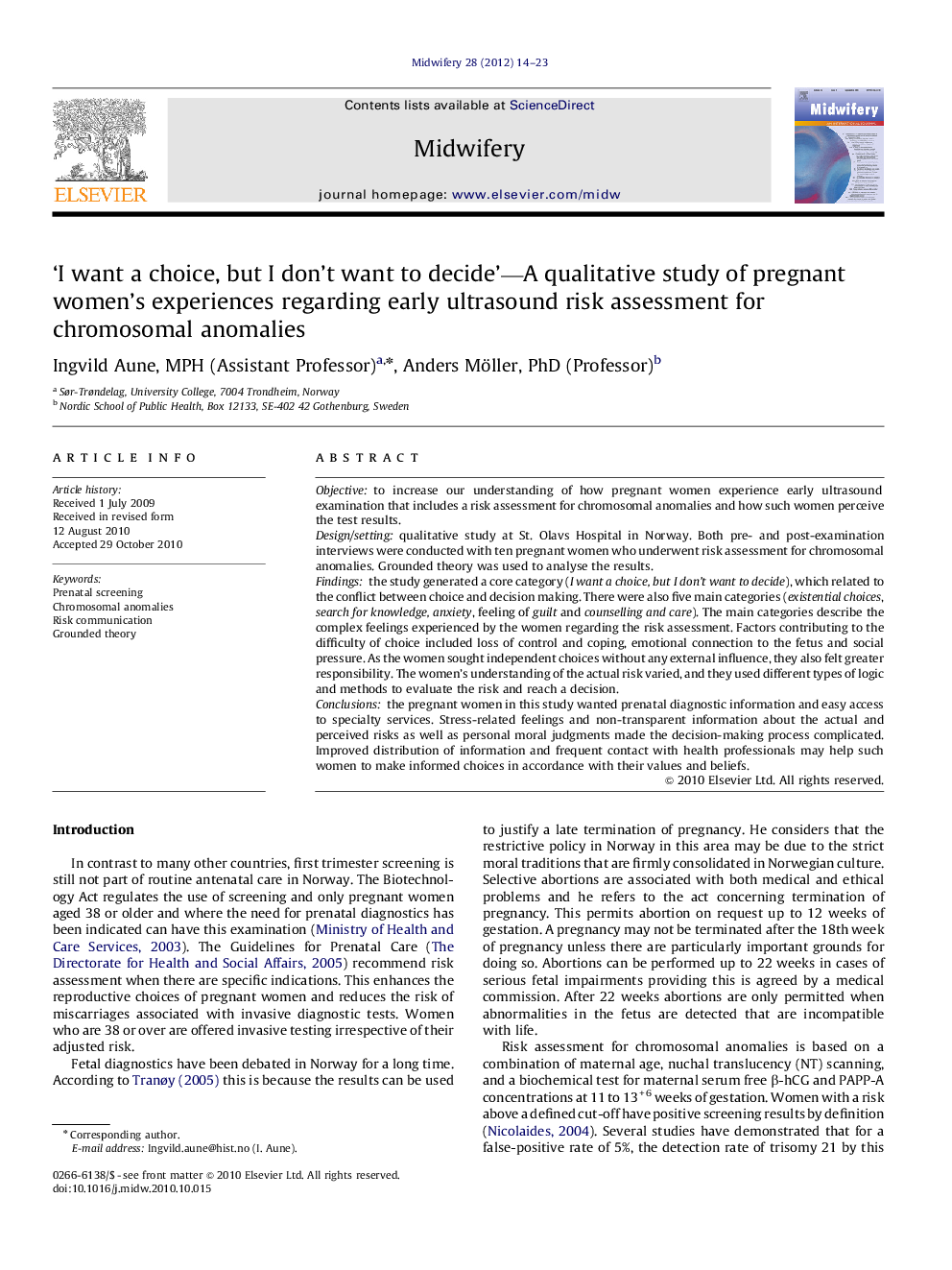| Article ID | Journal | Published Year | Pages | File Type |
|---|---|---|---|---|
| 1084968 | Midwifery | 2012 | 10 Pages |
Objectiveto increase our understanding of how pregnant women experience early ultrasound examination that includes a risk assessment for chromosomal anomalies and how such women perceive the test results.Design/settingqualitative study at St. Olavs Hospital in Norway. Both pre- and post-examination interviews were conducted with ten pregnant women who underwent risk assessment for chromosomal anomalies. Grounded theory was used to analyse the results.Findingsthe study generated a core category (I want a choice, but I don’t want to decide), which related to the conflict between choice and decision making. There were also five main categories (existential choices, search for knowledge, anxiety, feeling of guilt and counselling and care). The main categories describe the complex feelings experienced by the women regarding the risk assessment. Factors contributing to the difficulty of choice included loss of control and coping, emotional connection to the fetus and social pressure. As the women sought independent choices without any external influence, they also felt greater responsibility. The women’s understanding of the actual risk varied, and they used different types of logic and methods to evaluate the risk and reach a decision.Conclusionsthe pregnant women in this study wanted prenatal diagnostic information and easy access to specialty services. Stress-related feelings and non-transparent information about the actual and perceived risks as well as personal moral judgments made the decision-making process complicated. Improved distribution of information and frequent contact with health professionals may help such women to make informed choices in accordance with their values and beliefs.
